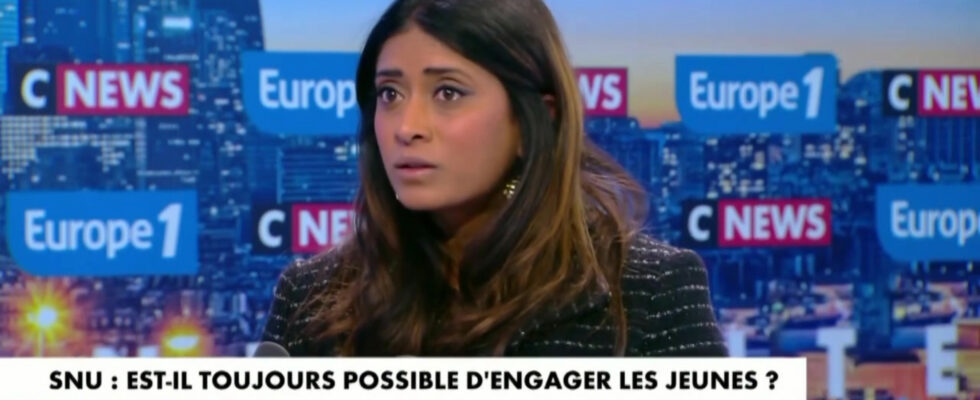The Universal National Service (SNU), divided into two phases, offers adolescents the opportunity to participate in a free 12-day “cohesion stay”, outside of school hours. Furthermore, a later phase is dedicated to engagement with a short mission of general interest or civic service lasting several months. On the other hand, this service could eventually evolve, as confirmed by Prisca Thévenot, Secretary of State in charge of the SNU and guest of the Great Europe 1-CNews interview this Friday. The service “is already evolving,” she assures Romain Desarbres at the microphone.
Defend the rule of law
For the former spokesperson for Renaissance, it is important to continue to defend our rule of law. However, to do this, we must not “forget that we are in a nation of duty”. “The sense of duty is not innate, it is learned, it develops, it is maintained. And yes, the Universal National Service allows this. We must remember that we have a common destiny, whatever where we come from, where we live, who we are. We have this subject of working together and having this ability to look in the same direction”, underlines Prisca Thévenot.
And, according to her, this is done around activities, notably phase 1 of the SNU. This represents the memorial duty, this ability to have activities to learn the relationship of authority, but also allows the learning of first aid gestures. “This is what the Universal National Service brings, which until then was on a voluntary basis, outside of school hours. And, from 2024, it will remain on a voluntary basis, but this time on school time”, she assures at the microphone of Romain Desarbres.
But, concretely, should the SNU be made compulsory? “Let’s not beat around the bush, I’m telling you very clearly. I hope, as Secretary of State for Youth and the SNU, that this Universal National Service becomes a republican passage for every young person in our nation. So yes, I would like it to be generalized,” admits Prisca Thévenot. On the other hand, she still makes it clear that this decision is not hers. “I have always been very respectful of everyone’s responsibilities. This decision belongs to the President of the Republic,” she notes. But if the Head of State wishes, Prisca Thévenot is available to debate it before Parliament.
